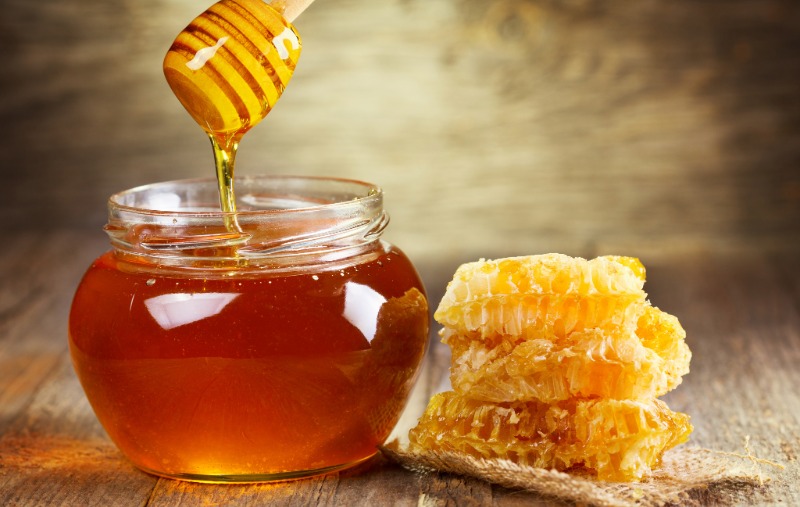The Sweet Benefits of Honey
For hundreds of years, people have loved honey, not just because it’s a natural sweetener but also because it helps with many health issues. From the time of the ancient Egyptians to today’s kitchens, this golden liquid provides a lot of benefits. Whether you pour it on your toast, mix it into your tea, or use it for its healing qualities, honey is a useful and important part of your diet.
Nutritional Profile of Honey
Honey is not just sugar; it has important nutrients and special compounds, such as:
- Antioxidants (like flavonoids and phenolic acids): They help fight oxidative stress.
- Enzymes (like glucose oxidase): They add to honey’s antibacterial qualities.
- Vitamins and Minerals: It has tiny amounts of vitamin C, calcium, iron, and magnesium.
- Natural Sugars: Mainly fructose and glucose, which give you quick energy.
Top Health Benefits of Honey
Relieves Coughs and Sore Throats
Honey is a popular natural treatment for coughs and throat discomfort. Its thick texture covers the throat, and its germ-fighting qualities help tackle infections.
- Research indicates that honey can work as well as some cough medicines (especially for kids over one year old).
- A warm drink with honey and lemon is a traditional comforting solution.
Enhances Wound Healing and Skin Health
Honey’s germ-fighting and swelling-reducing properties make it helpful for small burns, cuts, and skin issues like eczema.
- Manuka honey (a unique kind from New Zealand) is approved by the FDA for treating wounds.
- Raw honey can help lessen acne and hydrate dry skin when used on the skin.
Aids Digestive Health
Honey might assist with digestive problems, such as:
- Acid reflux: Its anti-inflammatory qualities can calm the esophagus.
- Gut health: It acts as a prebiotic, nourishing good gut bacteria.
- Ulcers: Some research suggests honey may help fight H. pylori, a bacteria associated with stomach ulcers.
Offers Natural Energy
The natural sugars in honey (fructose and glucose) make it a great energy source for athletes or anyone needing a quick pick-me-up.
- A spoonful before exercising can improve stamina.
- Unlike processed sugar, honey gives small amounts of nutrients that help with metabolism.
Loaded with Antioxidants
Dark, raw honey (like buckwheat honey) has high amounts of antioxidants, which help:
- Reduce oxidative stress.
- Lower the chances of chronic illnesses like heart disease.
- Boost immune function.
How to Use Honey for Maximum Benefits
Choose the Right Type
- Raw, Unprocessed Honey: This type keeps the most nutrients and enzymes.
- Manuka Honey: It’s the best for health purposes (make sure it has a high UMF rating).
- Local Honey: Some people think it helps with seasonal allergies
Culinary Uses
- Sweeten your tea, yogurt, or oatmeal with honey instead of regular sugar.
- Add it to salad dressings or marinades for a bit of natural sweetness.
- Drizzle it on pancakes, toast, or fruit for a yummy and healthy snack.
Home Remedies
- Sore Throat Relief: Combine honey with warm water, lemon, and ginger.
- Skin Treatment: Use raw honey as a face mask to keep your skin hydrated and fight acne.
- Sleep Aid: Taking a teaspoon of honey before bedtime might help you relax.
Precautions and Who Should Avoid Honey
Although honey is usually safe to eat, there are some exceptions:
- Infants Under 1 Year: Honey might have Clostridium botulinum spores, which can lead to infant botulism.
- People with Diabetes: Honey can still increase blood sugar levels, so it’s important to use it in moderation.
- Allergic Reactions: This is uncommon, but a few people might be allergic to the pollen found in honey.
Honey is not just a natural sweetener; it’s packed with health benefits, like helping with coughs and healing wounds. If you pick high-quality, raw honey and use it smartly, you can enjoy all its benefits while also savoring its delicious flavor.

